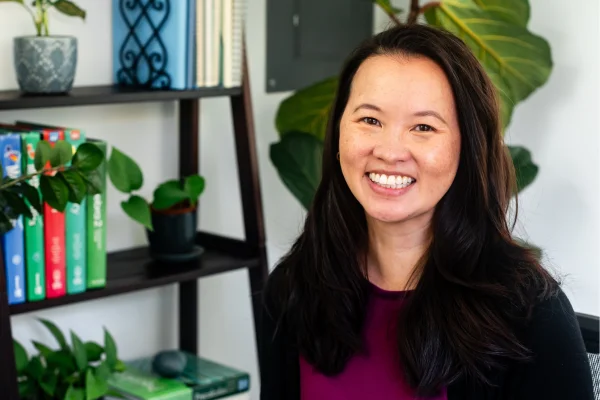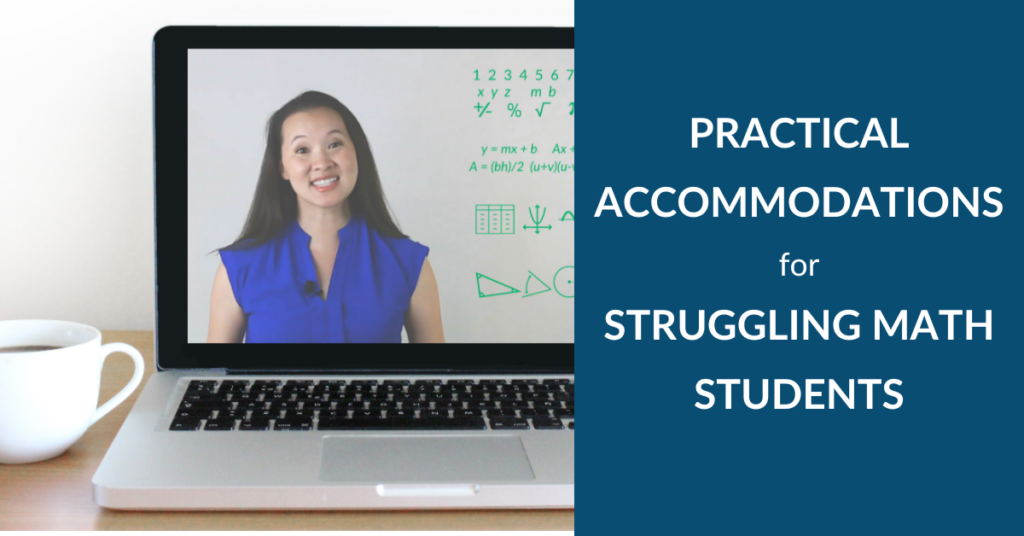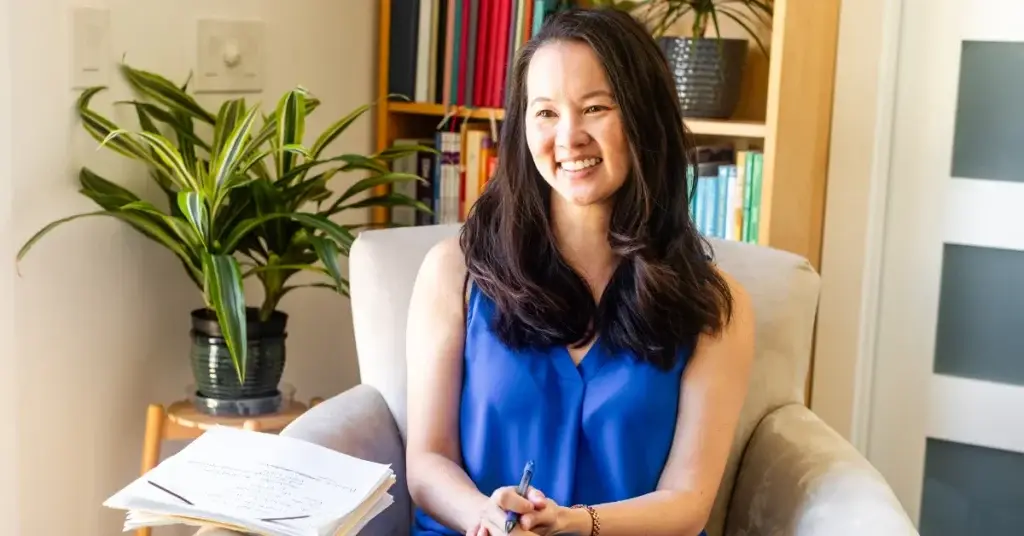About
About

Hi, I'm Adena
I support middle and high school students with dyscalculia, ADHD, and other math learning challenges, and help parents, educators, and schools to create effective support systems for struggling math students.
I believe in creating positive and meaningful learning experiences for all math students
I believe in creating positive and meaningful learning experiences for all math students
My Philosophy
All kids can learn math
Neurodiverse students need intentional instruction
A strong mathematical foundation is key
Whole-child support is essential
My Background
I am a…
School psychologist
I’ve worked in schools across the San Francisco Bay Area, provided psychological services to children at the preschool, elementary, and middle school levels, and worked in both public and non-public school settings. I’ve also worked as a learning specialist for Black Pine Circle School in Berkeley, CA, and a preschool teacher in Santa Monica and San Francisco, CA. Since 2014, I have owned a private practice focused on teaching and supporting middle, high school, and college students with math learning disabilities.
Math teacher
Trainer of trainers
Published researcher
As a doctoral student and post-doctoral scholar, I studied how factors like self-efficacy and metacognition impact students’ mathematical thinking and performance. In addition to my dissertation, I have published in the Journal of Advanced Academics and Gifted Child Quarterly and presented research papers at the national conventions of the American Educational Research Association, American Psychological Association, and National Association for Gifted Children.
Mindfulness practitioner
My Credentials
Education
- Ph.D. Education (School Psychology)
- M.A. Education (School Psychology)
- B.S. Neuroscience
Licenses
- California Licensed Educational Psychologist
- California Clear Pupil Personnel Services Credential
My Academic Work
Young, A. E. (2010). Explorations of metacognition among academically talented middle and high school mathematics students (Doctoral dissertation). Available from Proquest UMI Dissertation Publishing database. (Proquest No. 2128952731)
Young, A. E., & Worrell, F. C. (2018). Comparing metacognition assessments of mathematics in academically talented students. Gifted Child Quarterly. doi:10.1177/0016986218755915
Young, A. E., Worrell, F. C., & Gabelko, N. H. (2011). Predictors of success in accelerated and enrichment mathematics courses for academically talented adolescents. Journal of Advanced Academics, 22, 558-577. doi:10.1177/1932202X11414821
Worrell, F. C., & Young, A. E. (2011). Gifted children in urban settings. In T. L. Cross & J. R. Cross (Eds.), Handbook for counselors serving students with gifts and talents (pp. 137 – 152). Austin, TX: Prufrock Press.
Saxe, G. B., Gearhart, M., Shaughnessy, M. M., Earnest, D., Cremer, S., Sitabkhan, Y., … Young, A. (2009). A methodological framework and empirical techniques for studying the travel of ideas in classroom communities. In B. Schwartz, T. Dreyfus & R. Hershkowitz (Eds.), Transformation of Knowledge in Classroom Interaction. Amsterdam: Elsevier.
Young, A. E. (2011, December). Profiles of mathematics giftedness. Poster presented at the Annual Convention of the National Association for Gifted Children, New Orleans, LA.
Young, A. E. (2011, April). Examining the context-specific nature of metacognition in mathematics problem solving. Paper presented at the Annual Meeting of the American Educational Research Association, New Orleans, LA.
Young, A. E. (2010, August). Examining the construct validity of Junior Metacognitive Awareness Inventory scores. Poster presented at the Annual Convention of the American Psychological Association, San Diego, CA.
Young, A. E. (2010, August). Contextualizing metacognition and academic achievement: An examination of students’ thinking during problem solving. Poster presented at the Student Affiliates in School Psychology Mini-Convention, San Diego, CA.
Young, A. E. (2008, April). Predictors of mathematics achievement among academically talented middle and high school students. Roundtable presented at the Annual Meeting of the American Educational Research Association, New York, NY.
Saxe, G. B., Shaughnessy, M. M., Earnest, D., Cremer, S., Platas, L. M., Sitabkhan, Y., & Young, A. (2007, October). Fractions on the number line: The travel of ideas. Paper presented at the Twenty Ninth Annual Meeting of the North American Chapter of the International Group for the Psychology of Mathematics Education, Reno, NV.
My Invited Lectures & Talks
Young, A. E. (2022, September). 3 Big Ideas About Math Learning Disabilities. Presentation for Holy Names University’s Bay Area Teaching Training Institute, Course: Neurodiverse Classrooms, San Francisco, CA.
Young, A. E. (2021, February; 2019, March). Conceptualizing and Assessing Math Learning Disabilities. Guest Lecture for UC Berkeley Graduate School of Education, Course: Assessment and Education of Exceptional Pupils (EDUC 207D), Berkeley, CA.
Young, A. E. (2020, November). 3 Big Ideas About Math Learning Disabilities. Presentation for St. Mary’s Kalmanovitz School of Education, Course: Introduction to Neuropsychological Assessment, Moraga, CA.
Young, A. E. (2019, March). A Psychoeducational Approach to Understanding and Supporting Students with Math Learning Difficulties and Disabilities. Guest Lecture for UC Berkeley Graduate School of Education, Course: Educational Interventions for the School Psychologist (EDUC 213D), Berkeley, CA.
Young, A. E. (2018, February). Developing Interventions for Students with Math Learning Difficulties and Disabilities. Guest Lecture for UC Berkeley Graduate School of Education, Course: Educational Interventions for the School Psychologist (EDUC 213D), Berkeley, CA.
Young, A. E. (2018, February). Conceptualizing Mathematics Learning Disabilities and Developing Thoughtful Assessments. Guest Lecture for UC Berkeley Graduate School of Education, Course: Assessment and Education of Exceptional Pupils (EDUC 207D), Berkeley, CA.
Young, A. E. (2017, November; 2016, November; 2015, November; 2014, December; 2013, November; 2012, November; 2011, November). Developing Mathematical Thinking in Elementary Education. Guest Lecture for UC Berkeley Graduate School of Education, Course: Conceptual Bases for School Psychology (EDUC 213A), Berkeley, CA.
Young, A. E. (2017, May; 2016, April). Conceptualizing, Assessing, and Supporting Mathematics Learning Disabilities. Guest Lecture for St. Mary’s Kalmanovitz School of Education, Course: School Psychology Internship and Seminar (COUN 541), Moraga, CA.
Young, A. E. (2017, February; 2016, March; 2015, March). Conceptualizing and Assessing Mathematics Learning Difficulties and Disabilities: Research and Practice-Oriented Perspectives. Guest Lecture for UC Berkeley Graduate School of Education, Course: Assessment and Education of Exceptional Pupils (EDUC 207D), Berkeley, CA.
Young, A. E. (2017, March; 2016, March). Supporting Students with Math Learning Difficulties. Guest Lecture for UC Berkeley Graduate School of Education, Course: Educational Interventions for the School Psychologist (EDUC 213D), Berkeley, CA.
Young, A. E. (2016, March). Academic, Metacognitive and Psychosocial Factors in Secondary School Mathematics Learning. Guest Lecture for UC Berkeley Graduate School of Education, Course: Theoretical and Scientific Bases for School Psychology (EDUC 213B), Berkeley, CA.
Young, A. E. (2015, March). Math Interventions. Guest Lecture for UC Berkeley Graduate School of Education, Course: Educational Interventions for the School Psychologist (EDUC 213D), Berkeley, CA.
Young, A. E. (2015, March). The Roles of Metacognitive and Psychosocial Factors in Secondary Students’ Mathematics Development. Guest Lecture for UC Berkeley Graduate School of Education, Course: Theoretical and Scientific Bases for School Psychology (EDUC 213B), Berkeley, CA.
Young, A. E. (2012, April). “Doing Mathematics” in Secondary Schools. Guest Lecture for UC Berkeley Graduate School of Education, Course: Theoretical and Scientific Bases for School Psychology (EDUC 213B), Berkeley, CA.
Young, A. E. (2016, January). Assessing, Understanding, and Supporting Students with Mathematics Learning Challenges. Presentation for the Association for Educational Therapists San Francisco Study Group, San Francisco, CA.
Young, A. E. (2015, January). Developing Mathematical Thinkers: How Kids Learn Math, Where Learning Breaks Down, and What Educators Can Do to Support Children with Mathematics Learning Difficulties. Presentation for the Association for Educational Therapists Monthly Meeting, San Anselmo, CA.
Young, A. E. (2010, May). What’s Metacognition Got To Do With It? Presentation at the UC Berkeley Academic Talent Development Program Annual Teacher In-Service Training, Berkeley, CA.
Young, A. E. (2009, May). Predictors of Achievement in ATDP Mathematics Courses. Presentation at the UC Berkeley Academic Talent Development Program Annual Teacher In-Service Training, Berkeley, CA.
Young, A. E. (2008, May). Self-Regulated Learning: Theory into Practice. Presentation at the UC Berkeley Academic Talent Development Program Annual Teacher In-Service Training, Berkeley, CA.
My Philosophy
All kids can learn math
Students with learning disabilities are just as capable of learning math as neurotypical and mathematically advanced students. When given the instruction and accommodations they need, it’s possible for ALL students to develop deep mathematical understanding and become strong mathematical thinkers and problem solvers.
Neurodiverse students need intentional instruction
Students with math learning disabilities struggle predominantly because their brains work differently than other students. They learn best when we teach to their cognitive strengths, and accommodate and build skills to address their brain-based challenges.
A strong mathematical foundation is key
Math is a subject that builds on itself, especially in middle and high school. Students need to start with a solid understanding of middle school math in order to have a strong foundation that will support them in more advanced levels of mathematics.
Whole-child support is essential
It’s extremely common for students with math learning disabilities and challenges to feel stress, anxiety, and self-doubt. It’s important to me to support students’ emotional well-being and help them to grow their confidence as they learn math.
My Background
I am a…
School psychologist
I’ve worked in schools across the San Francisco Bay Area, provided psychological services to children at the preschool, elementary, and middle school levels, and worked in both public and non-public school settings. I’ve also worked as a learning specialist for Black Pine Circle School. Since 2014, I have owned a private practice focused on teaching and supporting middle, high school, and college students with math learning disabilities.
Math teacher
I started teaching math at age 16 when my local school district hired me to be a math tutor. I went on to join UC Berkeley Academic Talent Development Program’s (ATDP) math department as a teaching assistant, lead instructor, department chair, study lab coordinator, and math club organizer.
Published researcher
As a doctoral student and post-doctoral scholar, I studied how factors like self-efficacy and metacognition impact students’ mathematical thinking and performance. In addition to my dissertation, I have published in the Journal of Advanced Academics and Gifted Child Quarterly and presented research papers at the national conventions of the American Educational Research Association, American Psychological Association, and National Association for Gifted Children.
Trainer of trainers
Mindfulness practitioner
I have practiced insight meditation since 2011 and spent over 30 days on silent meditation retreats. I love to use mindfulness to help students who are experiencing stress and anxiety while doing math, and have taught many students and teachers how to meditate.
My Credentials
Education
- Ph.D. Education (School Psychology)
- M.A. Education (School Psychology)
- B.S. Neuroscience
Licenses
- California Licensed Educational Psychologist
- California Clear Pupil Personnel Services Credential
My Academic Work
Young, A. E. (2010). Explorations of metacognition among academically talented middle and high school mathematics students (Doctoral dissertation). Available from Proquest UMI Dissertation Publishing database. (Proquest No. 2128952731)
Young, A. E., & Worrell, F. C. (2018). Comparing metacognition assessments of mathematics in academically talented students. Gifted Child Quarterly. doi:10.1177/0016986218755915
Young, A. E., Worrell, F. C., & Gabelko, N. H. (2011). Predictors of success in accelerated and enrichment mathematics courses for academically talented adolescents. Journal of Advanced Academics, 22, 558-577. doi:10.1177/1932202X11414821
Worrell, F. C., & Young, A. E. (2011). Gifted children in urban settings. In T. L. Cross & J. R. Cross (Eds.), Handbook for counselors serving students with gifts and talents (pp. 137 – 152). Austin, TX: Prufrock Press.
Saxe, G. B., Gearhart, M., Shaughnessy, M. M., Earnest, D., Cremer, S., Sitabkhan, Y., … Young, A. (2009). A methodological framework and empirical techniques for studying the travel of ideas in classroom communities. In B. Schwartz, T. Dreyfus & R. Hershkowitz (Eds.), Transformation of Knowledge in Classroom Interaction. Amsterdam: Elsevier.
Young, A. E. (2011, December). Profiles of mathematics giftedness. Poster presented at the Annual Convention of the National Association for Gifted Children, New Orleans, LA.
Young, A. E. (2011, April). Examining the context-specific nature of metacognition in mathematics problem solving. Paper presented at the Annual Meeting of the American Educational Research Association, New Orleans, LA.
Young, A. E. (2010, August). Examining the construct validity of Junior Metacognitive Awareness Inventory scores. Poster presented at the Annual Convention of the American Psychological Association, San Diego, CA.
Young, A. E. (2010, August). Contextualizing metacognition and academic achievement: An examination of students’ thinking during problem solving. Poster presented at the Student Affiliates in School Psychology Mini-Convention, San Diego, CA.
Young, A. E. (2008, April). Predictors of mathematics achievement among academically talented middle and high school students. Roundtable presented at the Annual Meeting of the American Educational Research Association, New York, NY.
Saxe, G. B., Shaughnessy, M. M., Earnest, D., Cremer, S., Platas, L. M., Sitabkhan, Y., & Young, A. (2007, October). Fractions on the number line: The travel of ideas. Paper presented at the Twenty Ninth Annual Meeting of the North American Chapter of the International Group for the Psychology of Mathematics Education, Reno, NV.
My Invited Lectures & Talks
Young, A. E. (2022, September). 3 Big Ideas About Math Learning Disabilities. Presentation for Holy Names University’s Bay Area Teaching Training Institute, Course: Neurodiverse Classrooms, San Francisco, CA.
Young, A. E. (2021, February; 2019, March). Conceptualizing and Assessing Math Learning Disabilities. Guest Lecture for UC Berkeley Graduate School of Education, Course: Assessment and Education of Exceptional Pupils (EDUC 207D), Berkeley, CA.
Young, A. E. (2020, November). 3 Big Ideas About Math Learning Disabilities. Presentation for St. Mary’s Kalmanovitz School of Education, Course: Introduction to Neuropsychological Assessment, Moraga, CA.
Young, A. E. (2019, March). A Psychoeducational Approach to Understanding and Supporting Students with Math Learning Difficulties and Disabilities. Guest Lecture for UC Berkeley Graduate School of Education, Course: Educational Interventions for the School Psychologist (EDUC 213D), Berkeley, CA.
Young, A. E. (2018, February). Developing Interventions for Students with Math Learning Difficulties and Disabilities. Guest Lecture for UC Berkeley Graduate School of Education, Course: Educational Interventions for the School Psychologist (EDUC 213D), Berkeley, CA.
Young, A. E. (2018, February). Conceptualizing Mathematics Learning Disabilities and Developing Thoughtful Assessments. Guest Lecture for UC Berkeley Graduate School of Education, Course: Assessment and Education of Exceptional Pupils (EDUC 207D), Berkeley, CA.
Young, A. E. (2017, November; 2016, November; 2015, November; 2014, December; 2013, November; 2012, November; 2011, November). Developing Mathematical Thinking in Elementary Education. Guest Lecture for UC Berkeley Graduate School of Education, Course: Conceptual Bases for School Psychology (EDUC 213A), Berkeley, CA.
Young, A. E. (2017, May; 2016, April). Conceptualizing, Assessing, and Supporting Mathematics Learning Disabilities. Guest Lecture for St. Mary’s Kalmanovitz School of Education, Course: School Psychology Internship and Seminar (COUN 541), Moraga, CA.
Young, A. E. (2017, February; 2016, March; 2015, March). Conceptualizing and Assessing Mathematics Learning Difficulties and Disabilities: Research and Practice-Oriented Perspectives. Guest Lecture for UC Berkeley Graduate School of Education, Course: Assessment and Education of Exceptional Pupils (EDUC 207D), Berkeley, CA.
Young, A. E. (2017, March; 2016, March). Supporting Students with Math Learning Difficulties. Guest Lecture for UC Berkeley Graduate School of Education, Course: Educational Interventions for the School Psychologist (EDUC 213D), Berkeley, CA.
Young, A. E. (2016, March). Academic, Metacognitive and Psychosocial Factors in Secondary School Mathematics Learning. Guest Lecture for UC Berkeley Graduate School of Education, Course: Theoretical and Scientific Bases for School Psychology (EDUC 213B), Berkeley, CA.
Young, A. E. (2015, March). Math Interventions. Guest Lecture for UC Berkeley Graduate School of Education, Course: Educational Interventions for the School Psychologist (EDUC 213D), Berkeley, CA.
Young, A. E. (2015, March). The Roles of Metacognitive and Psychosocial Factors in Secondary Students’ Mathematics Development. Guest Lecture for UC Berkeley Graduate School of Education, Course: Theoretical and Scientific Bases for School Psychology (EDUC 213B), Berkeley, CA.
Young, A. E. (2012, April). “Doing Mathematics” in Secondary Schools. Guest Lecture for UC Berkeley Graduate School of Education, Course: Theoretical and Scientific Bases for School Psychology (EDUC 213B), Berkeley, CA.
Young, A. E. (2016, January). Assessing, Understanding, and Supporting Students with Mathematics Learning Challenges. Presentation for the Association for Educational Therapists San Francisco Study Group, San Francisco, CA.
Young, A. E. (2015, January). Developing Mathematical Thinkers: How Kids Learn Math, Where Learning Breaks Down, and What Educators Can Do to Support Children with Mathematics Learning Difficulties. Presentation for the Association for Educational Therapists Monthly Meeting, San Anselmo, CA.
Young, A. E. (2010, May). What’s Metacognition Got To Do With It? Presentation at the UC Berkeley Academic Talent Development Program Annual Teacher In-Service Training, Berkeley, CA.
Young, A. E. (2009, May). Predictors of Achievement in ATDP Mathematics Courses. Presentation at the UC Berkeley Academic Talent Development Program Annual Teacher In-Service Training, Berkeley, CA.
Young, A. E. (2008, May). Self-Regulated Learning: Theory into Practice. Presentation at the UC Berkeley Academic Talent Development Program Annual Teacher In-Service Training, Berkeley, CA.
Work With Me
Support for Students
Psychoeducational Math Support

TRAINING for Educators
Online Course for Math Teachers

Support for educators
Consultation for Teachers & Schools
